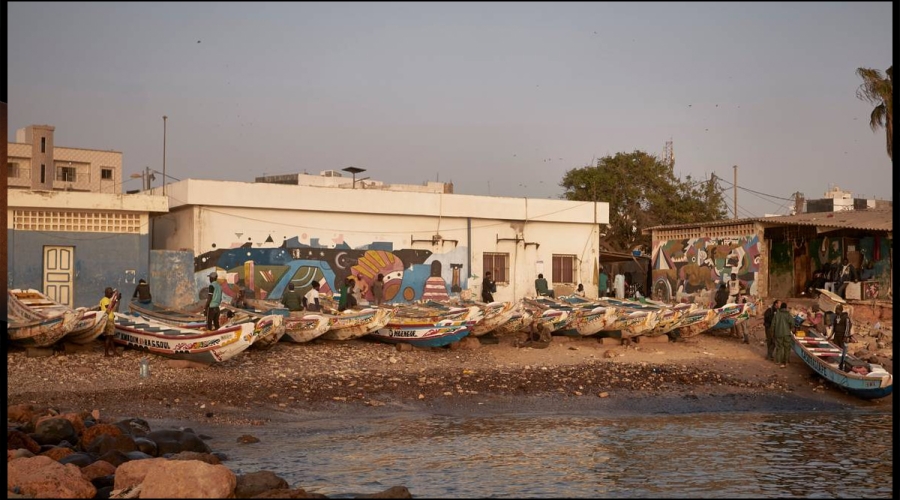Fishmeal Factories Devouring West Africa's Oceanic Food Basket

Senegal, where over half the population derives its protein from seafood, is witnessing its artisanal fishing sectors economically eviscerated as sardinella stocks dwindle. Gambian families reliant on these very species find their dinner plates being plundered offshore, the nutritional prospects of their children jeopardized by each additional plant greenlighted.
Across the sun-drenched shores of West Africa, a ravenous industry is threatening to devour the very lifeblood that has nourished communities for generations - sardines, bonga and other nutrient-rich small pelagic fish species. This scourge comes in the form of fishmeal plants rapidly proliferating across the region, driven by the inexorable pursuit of profits over human wellbeing. There are at least fifty Fishmeal and Fishoil (FMFO) factories operating in Mauritania, Senegal and The Gambia.
These factories have metastasized over the past decade - doubling fishmeal exports from Senegal since 2014 alone. Their insatiable appetite for fresh catch to be pulverized into animal feed is nothing short of a full-blown food robbery perpetrated against West Africans.
In Nouadhibou, the second-largest city in Mauritania and a significant trading hub, about 550,000 tons of fish are converted into fishmeal and fish oil annually, with 130,000 tons of fishmeal being shipped for export.
Senegal, where over half the population derives its protein from seafood, is witnessing its artisanal fishing sectors economically eviscerated as sardinella stocks dwindle. Gambian families reliant on these very species find their dinner plates being plundered offshore, the nutritional prospects of their children jeopardized by each additional plant greenlighted.
The math is as damning as it is unconscionable - for every four to five kilograms of fish surrendered to these factories' maws, just one kilogram of powdered feed is regurgitated for overseas aquaculture operations. A devastating conversion rate where the majority is nutritional waste. Prime seafood is rendered into pellets, while hunger persists in its land of origin.
This dire trajectory crystalizes most acutely in Senegal's fishing town of Cayar. Here, over 9,000 pirogues support 600,000 livelihoods and feed millions - yet a Spanish-owned fish-meal factory opened in 2018, devastating age-old fishery livelihoods. Vital fish processing jobs became inaccessible for artisanal women processors, diverting the very catch that could nourish nearly a million West African mouths.
For a region already beleaguered by spiking malnutrition in the wake of conflict, climate change and supply chain shocks, this unrelenting expansion of the fishmeal sector represents an utterly avoidable injustice. An inexplicable prioritization of aquaculture feed over human nutrition security and the obliteration of centuries-old livelihoods.
The clarion call to leaders like Senegal's newly elected president Bassirou Diomaye Faye is clear - bold interventions must be urgently enacted. Many of these FMFOs must be closed. Period. The oceanic food basket must primarily serve the nutritional and economic needs of local communities.
Critically, transparency and accountability around the operations of these fishmeal behemoths must be legislated and rigorously enforced. For too long, the smokescreen of "utilizing fish waste" has obscured the bitter truth - whole, nutritious catch being indiscriminately pillaged to feed these factories' furnaces.
The rights of women processors and artisanal fishing communities who have collectively stewarded the region's marine wealth for generations cannot be subverted at the altar of corporate profiteering. Their voices, autonomy and food sovereignty over coastal fisheries are non-negotiable cornerstones for any policy direction.
For if these factories are permitted to persist in their unchecked cannibalization of West Africa's sea harvest, the long-term outcome is clear - worsening food insecurity, social unrest as livelihoods disintegrate, and a permanent rupture in the ancient covenant that has bound these maritime nations to their oceanic breadbasket.
The path forward requires political courage, a reorientation of economic priorities, and a renaissance of ecological stewardship over the region's marine ecosystem. Unbridled resource extraction has had its day – West African sea shores must mark the line where West Africa's food security is finally placed above all other considerations. For in stemming the tide of these fishmeal factories, a whole world of human potentialities can be unleashed and nourished for generations to come.
This email address is being protected from spambots. You need JavaScript enabled to view it.

 En
En  Fr
Fr  Ar
Ar